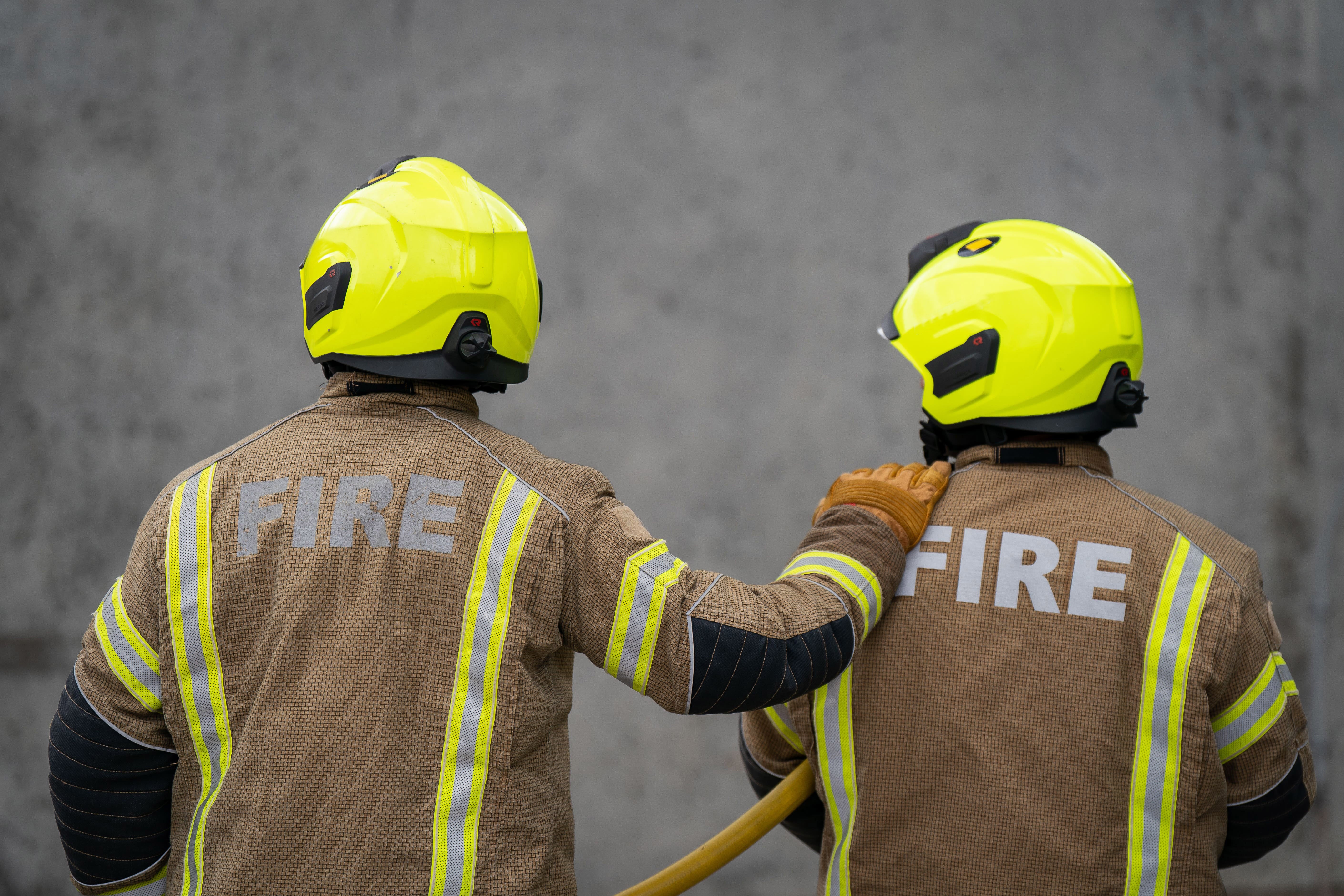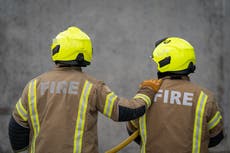We’ve opened a Pandora’s Box of toxic behaviours – it’s time for the fire service to face uncomfortable truths
One female firefighter told us her oxygen cylinders had been tampered with by male colleagues, as part of some sick joke that put her life at risk


Your support helps us to tell the story
From reproductive rights to climate change to Big Tech, The Independent is on the ground when the story is developing. Whether it's investigating the financials of Elon Musk's pro-Trump PAC or producing our latest documentary, 'The A Word', which shines a light on the American women fighting for reproductive rights, we know how important it is to parse out the facts from the messaging.
At such a critical moment in US history, we need reporters on the ground. Your donation allows us to keep sending journalists to speak to both sides of the story.
The Independent is trusted by Americans across the entire political spectrum. And unlike many other quality news outlets, we choose not to lock Americans out of our reporting and analysis with paywalls. We believe quality journalism should be available to everyone, paid for by those who can afford it.
Your support makes all the difference.When we published our Independent Culture Review of London Fire Brigade last November, I felt a mixture of emotions. There was immense sadness at how a poisonous culture of racism and misogyny had infected not only a proud British institution but one of the world’s largest firefighting and rescue organisations. There was relief at how the voices of beleaguered staff were finally being heard after years of being ignored. And there was also a sense of fear.
I knew London was not an isolated case. We had busted open Pandora’s box, which would inevitably shine an unforgiving light on toxic behaviours across the country. By subjecting themselves to a rigorous, independent review of their culture, London Fire Brigade had put every other fire and rescue service on notice. What had been contained by a culture of denial and institutional defensiveness for years was about to burst the dam.
And in the days and weeks that followed, my worst fears came true as I and my team were inundated with calls from firefighters all over the country. They confirmed that the toxic behaviour we’d uncovered in the capital was endemic.
One female firefighter told us her oxygen cylinders had been tampered with by male colleagues, as part of some sick joke that put her life at risk. Another had been threatened with dismissal when she complained about sexual harassment and others told us they’d been slammed against walls, thrown to the floor and told that, as women, they’d never be accepted and their lives would be hell unless they left.
So it’s not come as a great surprise to me that the Fire and Rescue Watchdog has announced that it has repeatedly found evidence of bullying, harassment and discrimination in many fire and rescue services across England.
Their report on values and culture across the service is shocking. Among the many incidents it documents include a senior manager using the N-word to describe a black colleague, male firefighters joking with a female firefighter that they were “going to rape her” and new recruits being routinely bullied and humiliated.
In a mirror image of what I found in London, it describes a “pack mentality” and staff being unable to challenge or report poor behaviours.
If alarm bells were ringing after London’s Culture Review, they should be deafening now as the whole of Britain’s uniformed services are under close scrutiny.
Their culture is stuck in the last century and the many sickening acts carried out by the police, army and firefighters which the public are now aware of are a terrible stain on the incredibly brave and essential work they do.
What stood out most for me in the aftermath of the London Fire Brigade Culture Review was that the organisation had a leader in Andy Roe who was prepared to face up to uncomfortable truths. He didn’t quibble about terms like institutional racism or try and defend the indefensible. He expressed shame at what had happened and a determination to put it right.
The jury is currently out on whether other fire chiefs have the same resolve. Recent examples such as the Dorset fire chief’s denial that his fire service had a problem after a string of scandals involving sexual misconduct does give me cause for concern.
The watchdog’s report includes 35 recommendations and many are similar to those included in my review. Fire service chiefs need to grip these and drive change. These include better and continual vetting of firefighters to ensure they are the right fit, a confidential way for staff to raise concerns without being threatened with dismissal and a more professional way of handling misconduct allegations.
The fact the watchdog has to issue these recommendations is a sure sign that, nationally, the fire and rescue service is in crisis.
Facing this uncomfortable truth is not going to be easy – and many leaders will resist. But I’m encouraged by some of the conversations I had last week when I addressed the National Fire Chiefs on culture. Many told me they are committed to change, but the proof will be in their actions.
But change they must, because there’s a grave danger that the fire service is at risk of becoming pickled in aspic. Unless they ensure all staff are treated with dignity and public trust is maintained, then standards will continue to fall and they won’t be able to deliver services fit for the 21st century.
Nazir Afzal OBE is a British solicitor and former prosecutor within the Crown Prosecution Service. He was appointed by a selection panel in 2021 to Chair a comprehensive and independent review of the culture of the London Fire Brigade



Join our commenting forum
Join thought-provoking conversations, follow other Independent readers and see their replies
Comments